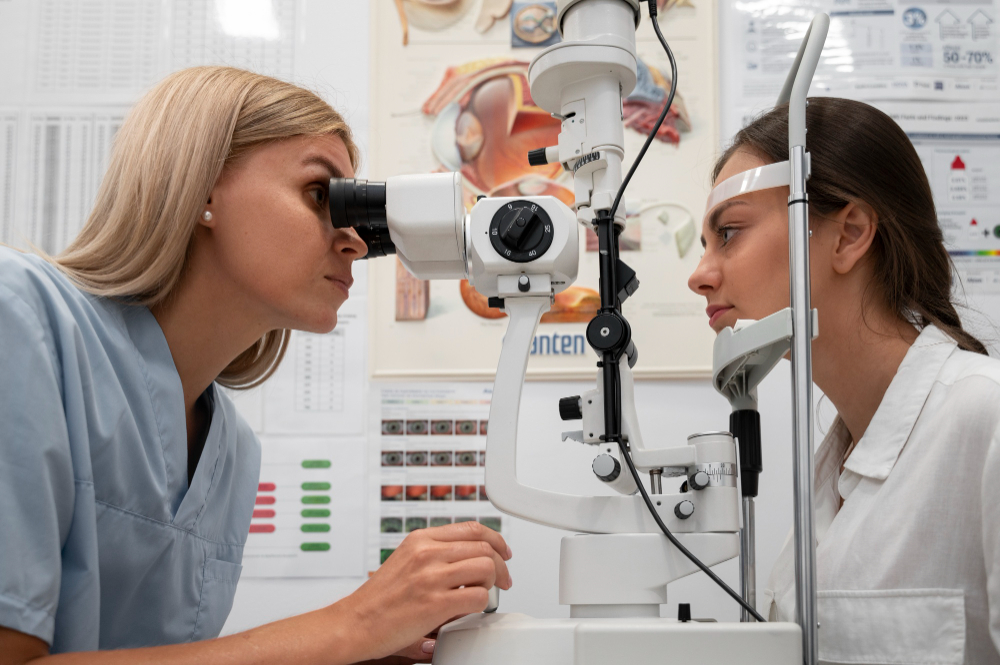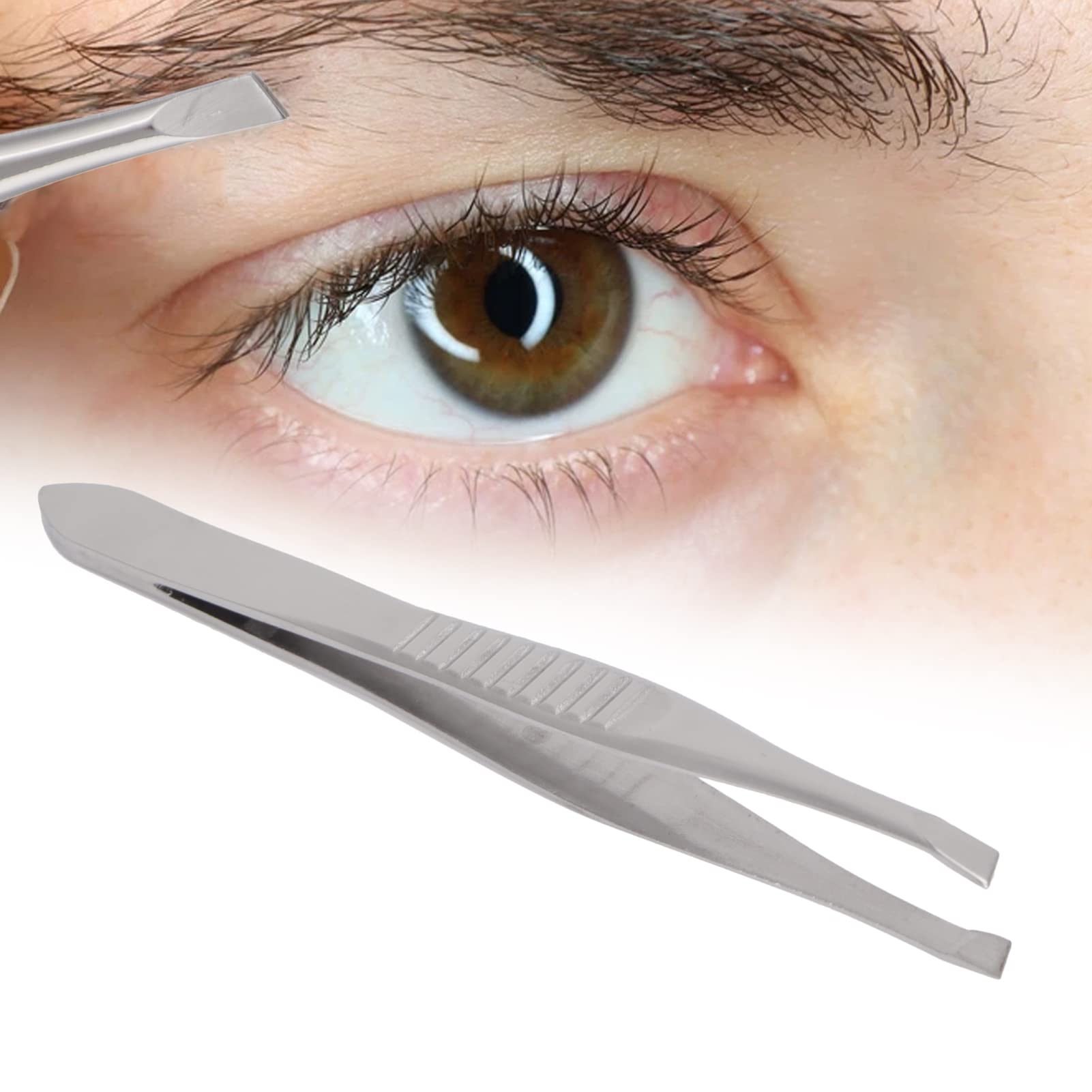The best practices that clear our vision and do not result in other diseases that are harmful to our eyesight include regular screening for eyes. Some eye conditions develop slowly without our knowledge. So, if you are wondering when to have a full eye check up, here is a simple guide on how to detect the signs that your eyes need extra care.
Why Screening for Eye Health Matters
One of the precious senses you possess is your eyesight. Screening will diagnose eye problems early enough to avoid any damage from worsening. While most eye diseases, like cataracts and glaucoma, begin silently, regular check-ups will keep you ahead of the game. Let’s have a look at the top signs that show it’s time to schedule an eye health screening.
1. Frequent Headaches
- Persistent Pain: If you often feel headaches that don’t go away, your eyes might be straining.
- Pain Around Your Eyes: When headaches seem to come from behind or around the eyes, they could mean your eyes are tired from focusing too hard.
- Increased Frequency: If you feel headaches more often, it’s a sign that your eyes may need help.
Because headaches are a common signal of eye strain, an eye health screening helps reveal if poor vision or another eye issue is causing them.
2. Difficulty Seeing at Night
- Struggling in Low Light: If you have trouble seeing clearly in dim light, your eyes may need checking.
- Halos Around Lights: Seeing rings or streaks around lights, especially when driving at night, could mean early cataracts.
- Slow Adjustment to Darkness: If your eyes take longer to adjust between light and dark, it may hint at early eye problems.
Night vision is important, especially for safe driving, so an eye screening can show if your eyes are working well in all types of light.
3. Blurry eyesight
- Sudden or Gradual Blurring: If you begin to see blurring in your vision that is either sudden or gradual, you should visit an eye doctor.
- Struggling to focus: if you are not able to see near or distant objects.
- One sees vague objects: Such an eye can be infected or affected by some disease for which it needs medicines from a doctor.
Clear vision is important, so a full eye check-up helps spot the cause and keeps your sight sharp.
4. Double Vision
- Seeing Two Images: Seeing double could be caused by conditions like cataracts or eye muscle weakness.
- Horizontal or Vertical Doubling: If double vision appears side by side or up and down, it can make reading or even walking confusing.
- Weakened Eye Muscles: Double vision might happen because your eye muscles are having a hard time working together.
Double vision affects daily activities, so a health screening can reveal what’s causing it and how to treat it.
5. Constant Eye Strain or Fatigue
- Tired Eyes After Short Tasks: If reading, writing, or screen time quickly exhausts your eyes, they are probably working too hard.
- Eye rubbing: You rub your eyes to massage them to relieve eye strain or fatigue.
- Back and neck pain: What you must know is your eyes can affect your position, and eye strain tends to easily cause neck and shoulder pain. That might mean stronger glasses or a new prescription.
Eye strain and fatigue can sometimes blur focus, so you will discover if you need corrective lenses or another option through a screening.
6. Increased Sensitivity to Light
- Bright Light Causes Discomfort: If light feels too bright, it may signal an eye infection or inflammation.
- Squinting in Normal Light: When regular light feels harsh, it could mean a corneal issue or sensitivity.
- Using Sunglasses Often: If you find yourself reaching for sunglasses all the time, your eyes may be sensitive to light or vulnerable to UV rays.
Light sensitivity often links to other eye conditions, so a check-up helps spot any underlying problems.
7. Dry or Itchy Eyes
- Constant Rubbing or Blinking: Rubbing or blinking often can signal dry, itchy eyes, especially if they’re not due to allergies.
- Redness and Irritation: If your eyes feel red or scratchy, it could mean you have dry eye syndrome or an infection.
- Pain with Eye Movement: If it hurts to move your eyes along with dryness, this might signal inflammation.
Dry eyes are uncomfortable, so an eye health screening will help treat the cause and relieve your symptoms.
8. Seeing Floaters or Flashes
- More Floaters Than Usual: If you start seeing small dots, strings, or “floaters,” especially if they increase, this might point to a retina problem.
- Flashes of Light: Seeing bright flashes or sparks could mean early signs of retinal detachment.
- Dark Spots in Vision: If dark spots block part of your view, there could be an issue with your retina or optic nerve.
Floaters or flashes aren’t always serious, but an eye health screening can show if your retina or other eye parts need care.
9. Difficulty Reading or Focusing on Close-Up Text
- Holding Text Farther Away: If you hold books or screens farther from your face to see clearly, it could be a sign of farsightedness or presbyopia.
- Blurry Close-Up Vision: When words or text start to blur up close, your eyes may need extra help.
- Quickly Tired Eyes: Feeling eye strain soon after reading can point to a need for reading glasses or an updated prescription.
Having trouble with close-up tasks makes daily activities harder, so an eye check-up can tell if corrective lenses will help.
10. Changes in Eye Appearance or Color
- Yellowing or Redness: If the whites of your eyes look yellow or stay red, it could mean health issues that need quick care.
- Droopy Eyelids: When one or both eyelids droop, it might signal muscle issues that need a doctor’s look.
- Unequal Pupil Size: If one pupil looks different than the other, it could signal nerve or brain issues that need medical attention.
Changes in how your eyes look are a strong sign to get a full eye check-up to catch the cause early.
Conclusion
Eye health screening helps an individual maintain clear vision, and averts future complications. For any of these symptoms, seek an eye check-up appointment today to protect your eyes and enjoy healthy vision. You can take proper care of your eyes through regular eye screening.




